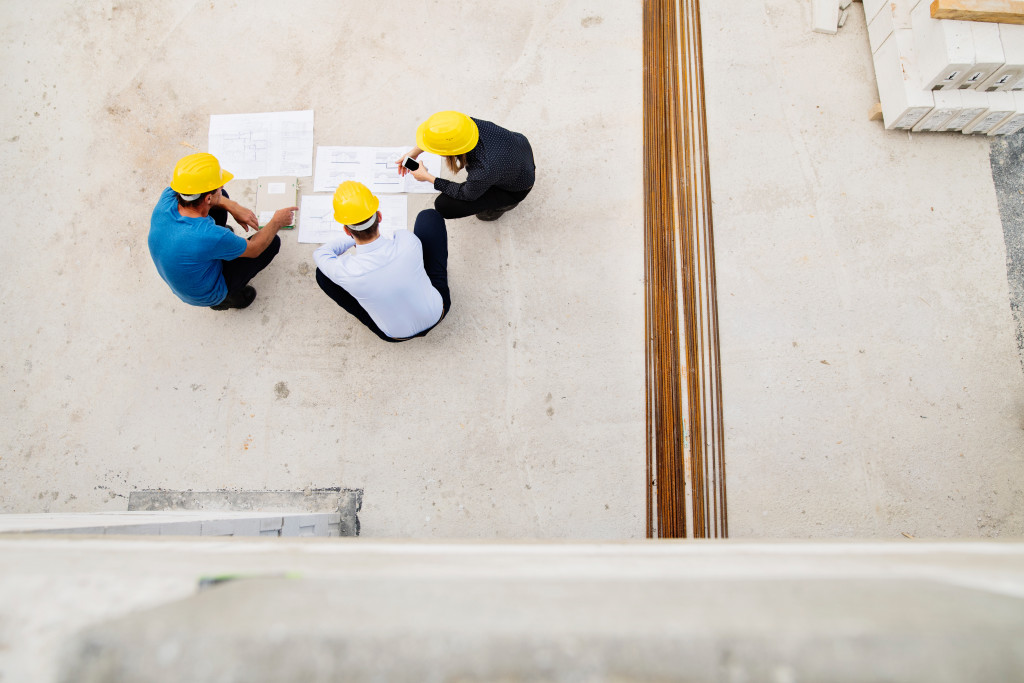The COVID-19 crisis has disrupted several industries, and the construction sector is among those severely impacted. Construction firms have encountered challenges in the supply chain, material acquisition, contractors’ health and safety, and local code compliance. Yet, the demand for residential and commercial construction has been high since the COVID-19 outbreak. Homeowners have considered improving their living spaces, while business owners have thought about renovating their commercial establishments.
For construction businesses to emerge victorious after the pandemic, they must take a few key steps. That said, here’s what a construction business must do during and after the crisis:
1. Increase off-site construction
When it comes to construction, most of the building tasks are done on-site. Construction starts from performing deep excavation and laying out the foundation and ends with finishing the building. It’s a good idea to consider some of the construction works to be done off-site. A perfect example is the production of pre-fabricated structures in a controlled environment. These structures are then combined in the actual construction site. This approach is best during the pandemic, given the need for social distancing and restricted movements.
2. Undergo a digital transformation
In recent years, there has been a digital transformation in the construction industry. Think of how engineers, architects, and contractors resort to digital technologies such as computer-aided design (CAD), additive manufacturing, extended realities, as well as 4D and 5D simulation. Even when it comes to sales and marketing, they rely on the web, whether through SEO, email marketing, content creation, or social management. This digital transformation has all the more become evident during the pandemic as clients and businesses have gone digital.
3. Invest in the latest tools and technology
Apart from digital innovation, construction companies must consider investing in tools and technology. Some of these digital tools include the use of automation, robotics, and machine learning. Also, physical technologies to purchase must be modern construction equipment and machinery such as excavators, backhoe loaders, and bulldozers. Not only do they help and aid contractors and workers, but they also make the construction process a lot more efficient and productive. Investing in tools and technology may be costly at first, but it will pay off in the long run.

4. Ensure resilient supply chain
The pandemic has created an impediment in the construction supply chain. Construction companies have struggled to deal with global suppliers due to the pandemic restrictions. As such, some firms have ventured into localized production or dealt with local suppliers. It’s best for construction businesses to reevaluate their supply chain and build a more resilient one to avoid downtime, especially during the pandemic. They must build their inventory, improve their logistics, secure vital materials, and look for alternative suppliers for a more resilient supply chain in the future.
5. Resort to industry collaboration
The construction industry, in general, must collaborate with other key players. The same is true for construction companies as they need to partner with businesses in related industries. These include Information Technology (IT), Research and Development (R&D), technology, and manufacturing. Through collaboration, these industries may discover potentials in their respective area. Ultimately, they must work hand in hand to combat the pandemic and remain stronger after.
6. Employ vertical integration
For the uninitiated, vertical integration entails taking over all phases of a project instead of relying on other parties in every stage. This approach particularly applies to the construction industry. Construction firms hired to pursue a building project usually get external suppliers and contractors to assist them on every project phase. A construction firm should be all-encompassing. That way, it can ensure the overall productivity and efficiency of its construction project.
7. Consider sustainability in construction
In recent times, there has been a strong push for sustainability in business in various industries. This call applies to construction firms as well. Why? They are among those greatly contributing to environmental degradation. Think of global gas emissions and disposal of waste products in the ocean.
It’s time for the construction industry to reevaluate the materials they use and the processes they incorporate in their construction projects. Firms must consider recycling, repurposing materials, using renewable energy sources, as well as proper disposal and reduction of waste products. The ultimate goal is to optimize the construction business without harming the environment.
There’s no doubt how the pandemic has posed challenges to the construction industry. On the other side of the spectrum, it has brought something positive to the table. Construction businesses have considered improving every aspect of their business to stay afloat during the COVID-19 crisis. That said, consider all the recommendations above, and your construction business will emerge victorious after the pandemic.

